Fleurs du Mal Magazine


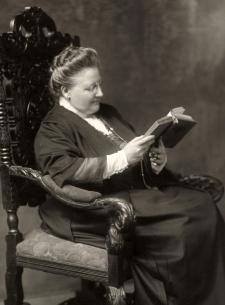
Lead Soldiers
The nursery fire burns brightly, crackling in cheerful
little explosions
and trails of sparks up the back of the chimney. Miniature
rockets
peppering the black bricks with golden stars, as though a gala
flamed a night of victorious wars.
The nodding mandarin on the bookcase moves his
head forward and back, slowly,
and looks into the air with his blue-green eyes. He stares
into the air
and nods — forward and back. The red rose in his hand
is a crimson splash
on his yellow coat. Forward and back, and his blue-green
eyes stare
into the air, and he nods — nods.
Tommy’s soldiers march to battle,
Trumpets flare and snare-drums rattle.
Bayonets flash, and sabres glance —
How the horses snort and prance!
Cannon drawn up in a line
Glitter in the dizzy shine
Of the morning sunlight. Flags
Ripple colours in great jags.
Red blows out, then blue, then green,
Then all three — a weaving sheen
Of prismed patriotism. March
Tommy’s soldiers, stiff and starch,
Boldly stepping to the rattle
Of the drums, they go to battle.
Tommy lies on his stomach on the floor and directs his columns.
He puts his infantry in front, and before them ambles a mounted
band.
Their instruments make a strand of gold before the scarlet-tunicked
soldiers,
and they take very long steps on their little green platforms,
and from the ranks bursts the song of Tommy’s soldiers marching
to battle.
The song jolts a little as the green platforms stick on the thick
carpet.
Tommy wheels his guns round the edge of a box of blocks, and places
a squad of cavalry on the commanding eminence of a footstool.
The fire snaps pleasantly, and the old Chinaman nods — nods. The
fire makes
the red rose in his hand glow and twist. Hist! That
is a bold song
Tommy’s soldiers sing as they march along to battle.
Crack! Rattle! The sparks
fly up the chimney.
Tommy’s army’s off to war —
Not a soldier knows what for.
But he knows about his rifle,
How to shoot it, and a trifle
Of the proper thing to do
When it’s he who is shot through.
Like a cleverly trained flea,
He can follow instantly
Orders, and some quick commands
Really make severe demands
On a mind that’s none too rapid,
Leaden brains tend to the vapid.
But how beautifully dressed
Is this army! How impressed
Tommy is when at his heel
All his baggage wagons wheel
About the patterned carpet, and
Moving up his heavy guns
He sees them glow with diamond suns
Flashing all along each barrel.
And the gold and blue apparel
Of his gunners is a joy.
Tommy is a lucky boy.
Boom! Boom! Ta-ra!
The old mandarin nods under his purple umbrella. The
rose in his hand
shoots its petals up in thin quills of crimson. Then
they collapse
and shrivel like red embers. The fire sizzles.
Tommy is galloping his cavalry, two by two, over the floor. They
must pass
the open terror of the door and gain the enemy encamped under the
wash-stand.
The mounted band is very grand, playing allegro and leading the
infantry on
at the double quick. The tassel of the hearth-rug has
flung down
the bass-drum, and he and his dapple-grey horse lie overtripped,
slipped out of line, with the little lead drumsticks glistening
to the fire’s shine.
The fire burns and crackles, and tickles the tripped
bass-drum
with its sparkles.
The marching army hitches its little green platforms
valiantly, and steadily
approaches the door. The overturned bass-drummer, lying
on the hearth-rug,
melting in the heat, softens and sheds tears. The song
jeers
at his impotence, and flaunts the glory of the martial and still
upstanding,
vaunting the deeds it will do. For are not Tommy’s soldiers
all bright and new?
Tommy’s leaden soldiers we,
Glittering with efficiency.
Not a button’s out of place,
Tons and tons of golden lace
Wind about our officers.
Every manly bosom stirs
At the thought of killing — killing!
Tommy’s dearest wish fulfilling.
We are gaudy, savage, strong,
And our loins so ripe we long
First to kill, then procreate,
Doubling so the laws of Fate.
On their women we have sworn
To graft our sons. And overborne
They’ll rear us younger soldiers, so
Shall our race endure and grow,
Waxing greater in the wombs
Borrowed of them, while damp tombs
Rot their men. O Glorious War!
Goad us with your points, Great Star!
The china mandarin on the bookcase nods slowly, forward and back—
forward and back — and the red rose writhes and wriggles,
thrusting its flaming petals under and over one another like tortured
snakes.
The fire strokes them with its dartles, and purrs at them,
and the old man nods.
Tommy does not hear the song. He only sees the beautiful,
new,
gaily-coloured lead soldiers. They belong to him, and
he is very proud
and happy. He shouts his orders aloud, and gallops his
cavalry past the door
to the wash-stand. He creeps over the floor on his hands
and knees
to one battalion and another, but he sees only the bright colours
of his soldiers and the beautiful precision of their gestures.
He is a lucky boy to have such fine lead soldiers to enjoy.
Tommy catches his toe in the leg of the wash-stand, and jars the
pitcher.
He snatches at it with his hands, but it is too late. The
pitcher falls,
and as it goes, he sees the white water flow over its lip. It
slips
between his fingers and crashes to the floor. But it
is not water which oozes
to the door. The stain is glutinous and dark, a spark
from the firelight
heads it to red. In and out, between the fine, new soldiers,
licking over the carpet, squirms the stream of blood, lapping at
the little green platforms, and flapping itself against the painted
uniforms.
The nodding mandarin moves his head slowly, forward and back.
The rose is broken, and where it fell is black blood. The
old mandarin leers
under his purple umbrella, and nods — forward and back, staring
into the air
with blue-green eyes. Every time his head comes forward
a rosebud pushes
between his lips, rushes into full bloom, and drips to the ground
with a splashing sound. The pool of black blood grows
and grows,
with each dropped rose, and spreads out to join the stream from
the wash-stand. The beautiful army of lead soldiers steps
boldly forward,
but the little green platforms are covered in the rising stream
of blood.
The nursery fire burns brightly and flings fan-bursts of stars up
the chimney,
as though a gala flamed a night of victorious wars.
Amy Lowell
(1874 – 1925)
Lead Soldiers
Poem
• fleursdumal.nl magazine
More in: Archive K-L, Archive K-L, Lowell, Amy

Sporen
Waarlijk liever schuil ik in ons huis, in deze
stad waarin ik gretige namen geef aan al dat
buiten en al die sporen. Men spreekt alsof
een dag te lang duurt in een eigen zegging
terwijl het kompas wijst naar een onverwachte
bedding. Weerbaar haperen klemtonen.
Bert Bevers
Sporen
uit Bedekte termen, bundel in voorbereiding
Bert Bevers is dichter en schrijver
Hij woont en werkt in Antwerpen (Be)
• fleursdumal.nl magazine
More in: Archive A-B, Archive A-B, Bevers, Bert

The Broken Heart
He is stark mad, whoever says,
That he hath been in love an hour,
Yet not that love so soon decays,
But that it can ten in less space devour;
Who will believe me, if I swear
That I have had the plague a year?
Who would not laugh at me, if I should say
I saw a flash of powder burn a day?
Ah, what a trifle is a heart,
If once into love’s hands it come!
All other griefs allow a part
To other griefs, and ask themselves but some;
They come to us, but us love draws;
He swallows us and never chaws;
By him, as by chain’d shot, whole ranks do die;
He is the tyrant pike, our hearts the fry.
If ’twere not so, what did become
Of my heart when I first saw thee?
I brought a heart into the room,
But from the room I carried none with me.
If it had gone to thee, I know
Mine would have taught thine heart to show
More pity unto me ; but Love, alas!
At one first blow did shiver it as glass.
Yet nothing can to nothing fall,
Nor any place be empty quite;
Therefore I think my breast hath all
Those pieces still, though they be not unite;
And now, as broken glasses show
A hundred lesser faces, so
My rags of heart can like, wish, and adore,
But after one such love, can love no more.
John Donne
(1572 – 1631)
The Broken Heart
• fleursdumal.nl magazine
More in: Archive C-D, Archive C-D, Donne, John
A landmark collection of poetry by acclaimed fiction writer, translator, and MacArthur Fellow John Keene, PUNKS: NEW & SELECTED POEMS is a generous treasury in seven sections that spans decades and includes previously unpublished and brand new work.
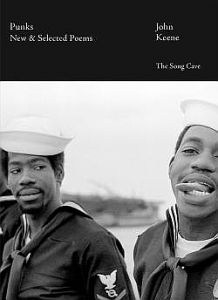 With depth and breadth, PUNKS weaves together historic narratives of loss, lust, and love. The many voices that emerge in these poems—from historic Black personalities, both familial and famous, to the poet’s friends and lovers in gay bars and bedrooms—form a cast of characters capable of addressing desire, oppression, AIDS, and grief through sorrowful songs that “we sing as hard as we live.”
With depth and breadth, PUNKS weaves together historic narratives of loss, lust, and love. The many voices that emerge in these poems—from historic Black personalities, both familial and famous, to the poet’s friends and lovers in gay bars and bedrooms—form a cast of characters capable of addressing desire, oppression, AIDS, and grief through sorrowful songs that “we sing as hard as we live.”
At home in countless poetic forms, PUNKS reconfirms John Keene as one of the most important voices in contemporary poetry.
John Keene is a writer, translator, professor, and artist who was named a MacArthur Fellow in 2018. In 1989, Keene joined the Dark Room Writers Collective, and is a Graduate Fellow of the Cave Canem Writers Workshops. He is the author of Annotations, and Counternarratives, both published by New Directions, as well as several other works, including the poetry collection Seismosis, with artist Christopher Stackhouse, and a translation of Brazilian author Hilda Hilst’s novel Letters from a Seducer. Keene is the recipient of many awards and fellowships—including the Windham-Campbell Prize, the Whiting Foundation Prize, the Republic of Consciousness Prize, and the American Book Award. He teaches at Rutgers University-Newark.
# new poetry
Punks: New & Selected Poems
John Keene
Pub Date:12/1/2021
Publisher: The Song Cave
ISBN: 978-1-73727-752-1
Binding: Paperback
Pages:234
Price: $ 20.00
• fleursdumal.nl magazine
More in: # Punk poetry, #Editors Choice Archiv, - Book News, Archive K-L, Archive K-L
Kingdomland is the debut poetry collection of Rachael Allen – a writer of rare vision and flair.
The world she creates is suffused with surreal images and uncanny incidents. Unexplained violences and strange metamorphoses take shape in the ‘glowering dusk’. And yet, all too clearly, we recognise life here on earth, its everyday griefs, dysfunctions and injustices.
 Where distinctions between murder and bloodletting, corruption and consumption are blurred. Where a pet tarantula or mimic octopus might find itself beside glands and processed meats. Landscapes shift and identities dissolve: ‘the red bricks of the day’ exist ‘in a woman’s chest’, a human presence is ’embedded in the walls’. All appears changed, but familiar.
Where distinctions between murder and bloodletting, corruption and consumption are blurred. Where a pet tarantula or mimic octopus might find itself beside glands and processed meats. Landscapes shift and identities dissolve: ‘the red bricks of the day’ exist ‘in a woman’s chest’, a human presence is ’embedded in the walls’. All appears changed, but familiar.
Intercut with oblique verse fragments and a series of linked sequences, Allen blends elements of fiction and ekphrasis to create a haunting and unforgettable debut.
Rachael Allen was born in Cornwall and studied at Goldsmiths College. She is the co-author of Jolene, a book of poems and photographs with Guy Gormley, and Nights of Poor Sleep, a book of poems and paintings with Marie Jacotey. She has received a Northern Writers’ Award and an Eric Gregory Award, and was made a Faber New Poet in 2014. She is poetry editor at Granta and co-founder of the poetry press clinic and online journal tender.
( . . . )
The white ocean spreads itself
like the badly iced top of a cake
seen through the smeared Plexiglas
of a cheap hotel restaurant.
I grate flesh into garlanded toilet water,
rearrangements of a desiccated sky.
( . . . )
# new poetry
Kingdomland
by Rachael Allen (Author)
Paperback
80 pages
Publisher: Faber & Faber
Main edition
17 Jan. 2019
Language : English
ISBN-10 : 057134111X
ISBN-13 : 978-0571341115
Dimensions: 12.7 x 0.76 x 19.3 cm
€ 18,99
•fleursdumal.nl magazine
More in: #Editors Choice Archiv, - Book News, Archive A-B, Archive A-B
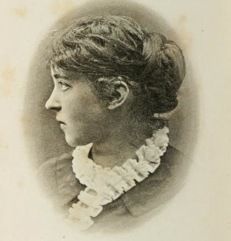
La Pendule Arrêtée
C’est une chambre peinte à fresque
Avec de hauts murs lambrissés;
Lorsque l’on entre, on croirait presque
Rentrer dans les siècles passés.
On éprouve une gêne étrange
Dans cet endroit silencieux:
Il semble que l’on y dérange
Un rendez-vous mystérieux.
Je ne sais point pour quelle cause
L’appartement fut délaissé;
La fenêtre en est toujours close,
Sous le grand store bien baissé.
Il s’y passa, l’on peut le croire,
Autrefois des faits importants,
Mais nul ne connaît plus l’histoire
Que recouvre la nuit du temps.
On y voit sur la cheminée,
Entre deux flambeaux vermoulus,
Une pendule très ornée
Qui depuis longtemps ne va plus.
Il s’est enfui bien des années
Tandis qu’inactive elle dort,
Ses aiguilles comme enchaînées
Par le silence de la mort.
Que fut l’heure mystérieuse
Dont elles ne sauraient bouger?
Quelle est la main triste ou joyeuse,
Qui retint le battant léger?
C’est un secret et je l’ignore,
Un secret que l’oubli scella…
Les meubles seuls pourraient encore
Raconter cette histoire-là;
Car dans la vieille et triste chambre
Tout parle encor du temps ancien,
Même le léger parfum d’ambre
Qui vous saisit lorsqu’on y vient.
Les ans, dans leur marche sévère.
Ont fui, par les jours emportés,
Mais la pendule solitaire
Ne les a pas même comptés.
Il n’est plus qu’une heure pour elle,
Heure égale à l’éternité,
Et cette heure unique c’est celle
Où son battant fut arrêté.
Ainsi parfois sur cette terre
Où nous avons été placés,
Nous rencontrons, triste mystère,
Des cœurs vivant aux jours passés.
Comme la pendule fidèle
Dans la salle aux lambris doré,
Ils se sont de l’heure actuelle
Volontairement séparés.
Pour eux aussi, toute la vie,
L’instant présent et l’avenir,
Est dans une heure évanouie
Qui ne doit jamais revenir…
Le temps a beau marcher sans trêve,
Ils ne l’entendent pas couler,
Et trop absorbés par leur rêve,
Ils ne peuvent s’en éveiller.
Qu’importe si les jours s’amassent,
Qu’il soit le matin ou le soir,
Que les ans s’arrêtent ou passent,
Ils ne veulent pas le savoir.
Désormais, leur être demeure
Sur le même point arrêté;
Ils ne connaissent plus qu’une heure,
Et c’est pour eux l’éternité.
4 février 1881
Alice De Chambrier
(1861-1882)
La PenduleArrêtée
• fleursdumal.nl magazine
More in: Alice De Chambrier, Archive C-D, Archive C-D, Chambrier, Alice De
Op 12 maart 2022 was het honderd jaar geleden dat Jack Kerouac werd geboren. Op die dag verscheen het nog niet eerder in het Nederlands vertaalde Eenzame reiziger, waarin Kerouac in ‘jazzy impressionistisch proza’ (The New Yorker) verslag doet van zijn omzwervingen door de VS, Mexico, Marokko, Londen en Parijs.
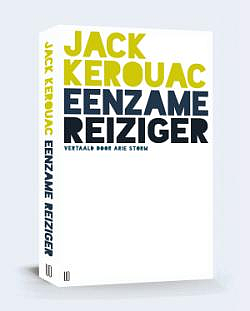 Eenzame reiziger (voor het eerst gepubliceerd in 1960) is een tijdloos reisverslag en een jubelende viering van de menselijke ontdekkingsdrang. Terwijl hij door de VS, Mexico, Marokko, Parijs en Londen zwerft, legt Kerouac in poëtisch proza het leven onderweg vast.
Eenzame reiziger (voor het eerst gepubliceerd in 1960) is een tijdloos reisverslag en een jubelende viering van de menselijke ontdekkingsdrang. Terwijl hij door de VS, Mexico, Marokko, Parijs en Londen zwerft, legt Kerouac in poëtisch proza het leven onderweg vast.
Staande op de locomotief van een trein die langs velden met stekelige cactussen raast; zijn eerste stierengevecht in Mexico terwijl hij high is van opium; bijpraten met de jongeren van het beat-nachtleven in New York; zichzelf begraven in de met sneeuw bedekte bergen van Noordwest-Amerika; mediteren op een zonovergoten dak in Tanger; of verliefd worden op Montmartre en de prachtige basilique du Sacré-Cœur – Kerouac schrijft zowel over de eindeloze diversiteit van het menselijk leven als over zijn eigen levenslustige filosofie van zelfontplooiing.
Jack Kerouac (1922-1969), geboren in Massachusetts, studeerde aan de Columbia Universiteit in New York, waar hij een aantal van de schrijvers ontmoette die later deel zouden uitmaken van de Beat Generation, onder wie Allen Ginsberg en William Burroughs. In 1957 werd On The Road gepubliceerd. Ongelukkig door het succes en alle aandacht trok hij zich terug in zijn geboorteplaats, waar hij op zevenenveertigjarige leeftijd stierf aan de gevolgen van een leverbloeding.
Eenzame reiziger
Auteur: Jack Kerouac
Vertaald door Arie Storm
Taal: Nederlands
Verschijningsdatum maart 2022
Druk 1
Afmeting: 20,1 x 12,6 x 2,6 cm
Bindwijze Paperback
280 pagina’s
Illustraties: Nee
EAN 9789492068828
NUR 320
Uitgeverij Oevers
€22,50
• fleursdumal.nl magazine
More in: #Beat Generation Archives, - Book News, Archive K-L, Burroughs, William S., Ginsberg, Allen, Kerouac, Jack
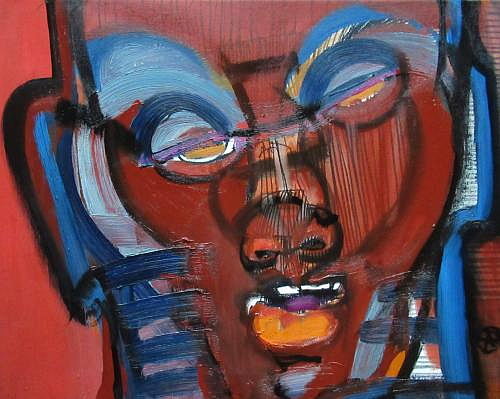
De lente lonkt, het virus blaast de aftocht, tijd voor een lustige expositie in het ‘Metropolitan Museum Tilburg’, de raamtentoonstellingen aan de Stedekestraat. Het museum presenteert u ‘TUTTI FRUTTI’ van de veelzijdige Tilburgse kunstenaar Antoine Timmermans.
De meester pakt uitbundig uit met een reeks sprankelende portretten, spontane, bijkans impulsieve, schilderijen waar de kleurenrijkdom vanaf spat. Doeken met fleurige geliefden en gestorvenen, echte en gedroomde, ze kijken u allen doordringend aan.
Het werk van Timmermans is doortrokken van het ‘echte’ leven, iets waar, volgens hem, kunst over zou moeten gaan: “we hebben betere verhalen nodig voor onze toekomst!” Nu met canvas, penselen en olieverf. En zoals altijd met humor. De kunstenaar is daarnaast bekend als decorbouwer, ontwerper van flamboyante kleding, theatermaker, maar vooral als de dragqueen ‘Cybersissy’. U kent haar vast van Roze Maandag of uit de vele clubs in binnen- en buitenland.
De schilder volgde zijn kunstopleidingen in Breda, Arendonk, Den Haag en Den Bosch. In weerwil wat destijds in zwang was legde hij zich toe op de figuratieve kunst. In prikkelende beelden, extravagante kostuums, bonte pruiken en mutsen, en natuurlijk in zijn schilderijen. Deze laatsten kunt u zien in het ‘Metropolitan Museum’ van vrijdag 18 maart t/m zondag 8 mei 2022, Stedekestraat 15, 5041DM Tilburg. Dagelijks, dag en nacht open, toegang vrij.
‘Metropolitan Museum Tilburg’
Stedekestraat 15
5041DM Tilburg
vrijdag 18 maart t/m zondag 8 mei 2022
‘TUTTI FRUTTI’ Antoine Timmermans
# 18 maart t/m 8 mei 2022
# dagelijks, dag en nacht, toegang vrij
# ‘Metropolitan Museum | Tilburg’
Stedekestraat 15, 5041DM Tilburg
telefoon: 013 5358041 / 06 20325030
email: post@metropolitanmuseum.nl
website: www.metropolitanmuseum.nl
• fleursdumal.nl magazine
More in: #More Poetry Archives, Archive M-N, Archive S-T, Exhibition Archive, Metropolitan Museum Tilburg
Winkelstraat in Tilburg
Armoei, kindersterfte, dwangarbeid en hei
bestaan niet meer. We zijn van winters wei-
en zomers hooiland helemaal vervreemd, en
wat ooit de verschillen waren tussen beemd
en eeuwsel, niemand weet het meer. De tijd
liet de gemene gronden van het nageslacht
alleen wat weemoed na, een soort respijt,
een voorgevoel. Alsof er wordt gewacht.
Paul Bezembinder
Winkelstraat in Tilburg
Gedicht
Paul Bezembinder studeerde theoretische natuurkunde in Nijmegen. In zijn poëzie zoekt hij vooral in klassieke versvormen en thema’s naar de balans tussen serieuze poëzie, pastiche en smartlap. Zijn gedichten en vertalingen (Russisch-Nederlands) verschenen in verschillende (online) literaire tijdschriften. Bundels: Kwatrijnen (Fantom E-books, 2018), Gedichten (2020, heruitgave), Parkzicht (2020). Meer voorbeelden van zijn werk vindt u op: www.paulbezembinder.nl.
• fleursdumal.nl magazine
More in: #Editors Choice Archiv, Archive A-B, Archive A-B, Bezembinder, Paul
A master of documentary poetry, Erika Meitner takes up the question of desire and intimacy in her latest collection of poems.
In her previous five collections of poetry, Erika Meitner has established herself as one of America’s most incisive observers, cherished for her remarkable ability to temper catastrophe with tenderness. In her newest collection Useful Junk, Meitner considers what it means to be a sexual being in a world that sees women as invisible—as mothers, customers, passengers, worshippers, wives.
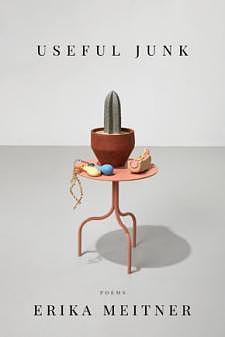 These poems render our changing bodies as real and alive, shaped by the sense memories of long-lost lovers and the still thrilling touch of a spouse after years of parenthood, affirming that we are made of every intimate moment we have ever had.
These poems render our changing bodies as real and alive, shaped by the sense memories of long-lost lovers and the still thrilling touch of a spouse after years of parenthood, affirming that we are made of every intimate moment we have ever had.
Letter poems to a younger poet interspersed throughout the collection question desire itself and how new technologies—Uber, sexting, Instagram—are reframing self-image and shifting the ratios of risk and reward in erotic encounters.
With dauntless vulnerability, Meitner travels a world of strip malls, supermarkets, and subway platforms, remaining porous and open to the world, always returning to the intimacies rooted deep within the self as a shout against the dying earth.
Boldly affirming that pleasure is a vital form of knowledge, Useful Junk reminds us that our bodies are made real and beautiful by our embodied experiences and that our desire is what keeps us alive.
Erika Meitner is the author of five books of poems, including Ideal Cities (Harper Perennial, 2010), which was a 2009 National Poetry Series winner, Copia (BOA Editions, 2014), and Holy Moly Carry Me (BOA Editions, 2018). Her poems have appeared in The New York Times Magazine, Tin House, The New Republic, Virginia Quarterly Review, Oxford American, Best American Poetry, Ploughshares, and elsewhere. In 2015, she was the US-UK Fulbright Distinguished Scholar in Creative Writing at the Seamus Heaney Centre for Poetry at Queen’s University Belfast, and she has also received fellowships from The MacDowell Colony, the Virginia Center for Creative Arts, the Blue Mountain Center, and the Wisconsin Institute for Creative Writing. She is currently an associate professor of English at Virginia Tech, where she directs the MFA and undergraduate programs in Creative Writing.
# new poetry
Useful Junk
By: Erika Meitner
Regular price $ 17.00
Publisher: BOA Editions Ltd.
April 5, 2022
Language: English
Paperback: 104 pages
ISBN-10: 1950774538
ISBN-13: 978-1950774531
•fleursdumal.nl magazine
More in: #Modern Poetry Archive, - Book News, Archive M-N, Archive M-N
Geluksvogels bevat een keuze uit Luigi Pirandello’s Novellen voor een jaar, in een blinkend nieuwe vertaling van Yond Boeke en Patty Krone.
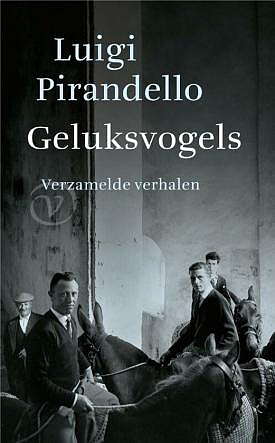 Pirandello schreef deze opmerkelijk hoogwaardige verzameling verhalen tussen 1894 en 1936. Zijn dood belette hem het project – één novelle voor elke dag van het jaar – te voltooien.
Pirandello schreef deze opmerkelijk hoogwaardige verzameling verhalen tussen 1894 en 1936. Zijn dood belette hem het project – één novelle voor elke dag van het jaar – te voltooien.
De diversiteit van zijn verhalen, die getuigen van groot psychologisch inzicht, een buitengewoon scherp gevoel voor humor en immens mededogen, is exemplarisch voor Pirandello’s enorme veelzijdigheid als schrijver.
Hij voert een breed scala aan markante personages ten tonele: van arme Siciliaanse boeren die tevergeefs strijden tegen de clerus tot wufte stedelingen die verstrikt raken in hun eigen overspel, van een wanhopige patiënt die in een New Yorks ziekenhuis uit het raam springt tot een geëxalteerde actrice die het moet opnemen tegen een vleermuis.
Pirandello laveert virtuoos tussen vlotte dialogen, van weemoed doortrokken landschapsbeschrijvingen en filosofische bespiegelingen over het aardse bestaan. Sommige verhalen blijken ook nu nog verrassend actueel.
Luigi Pirandello (1867-1936), geboren in een gegoede familie op Sicilië, kreeg in 1934 de Nobelprijs voor de Literatuur. De verfilming van zijn verhalen door Paolo en Vittorio Taviani, Kaos, werd wereldberoemd.
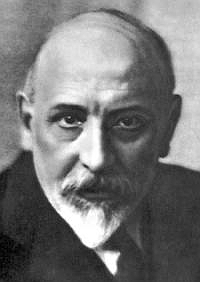 # new translations
# new translations
Geluksvogels Verzamelde verhalen
Auteur: Luigi Pirandello
Taal: Nederlands
Vertaald door Yond Boeke & Patty Krone
Hardcover
Druk: 1 februari 2022
832 pagina’s
ISBN 9789028213142
€ 45,00
• fleursdumal.nl magazine
More in: #Editors Choice Archiv, Archive O-P, Archive O-P, Pirandello, Luigi, Pirandello, Luigi
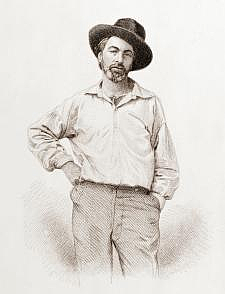
Beat! Beat! Drums!
Beat! beat! drums!–Blow! bugles! blow!
Through the windows–through doors–burst like a ruthless force,
Into the solemn church, and scatter the congregation;
Into the school where the scholar is studying;
Leave not the bridegroom quiet–no happiness must he have now with his bride;
Nor the peaceful farmer any peace, plowing his field or gathering his grain;
So fierce you whirr and pound, you drums–so shrill you bugles blow.
Beat! beat! drums!–Blow! bugles! blow!
Over the traffic of cities–over the rumble of wheels in the streets:
Are beds prepared for sleepers at night in the houses? No sleepers must sleep in those beds;
No bargainers’ bargains by day–no brokers or speculators–Would they continue?
Would the talkers be talking? would the singer attempt to sing?
Would the lawyer rise in the court to state his case before the judge?
Then rattle quicker, heavier drums–you bugles wilder blow.
Beat! beat! drums!–Blow! bugles! blow!
Make no parley–stop for no expostulation;
Mind not the timid–mind not the weeper or prayer;
Mind not the old man beseeching the young man;
Let not the child’s voice be heard, nor the mother’s entreaties;
Make even the trestles to shake the dead, where they lie awaiting the hearses,
So strong you thump, O terrible drums–so loud you bugles blow.
Walt Whitman
(1819 – 1892)
Poem: Beat! Beat! Drums!
• fleursdumal.nl magazine
More in: Archive W-X, Archive W-X, Whitman, Walt
Thank you for reading Fleurs du Mal - magazine for art & literature